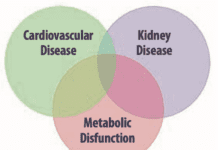When it comes to womens heart health, all carbohydrates are not created equal: Consuming too many carbs that quickly boost blood sugar may raise womens risk of heart disease, according to a new Italian study.Scientists know that high-carbohydrate diets increase blood glucose and triglyceride levels while reducing protective HDL cholesterol. But carbohydrates differ in their effects on blood glucose levels. The glycemic index (GI) is a measure of how much a food raises blood glucose levels compared with the same amount of sugar or white bread. A related measure, the glycemic load (GL), is calculated based on the glycemic index of a given food as well as the total amount of carbohydrates it contains.Sabina Sieri, PhD, of Fondazione IRCCS Istituto Nazionale dei Tumori, and colleagues studied 47,749 Italian adults- 15,171 men (ages 35-64) and 32,578 women (ages 35-74)-originally recruited for the long-running European Prospective Investigation into Cancer and Nutrition (EPIC). Based on dietary questionnaires, the researchers calculated participants overall carbohydrate intakes as well as the average glycemic index of the foods they consumed and the glycemic loads of their diets. During almost eight years of follow-up, 463 participants- 158 women and 305 men-developed coronary heart disease.Sieri and colleagues found that women who consumed the most total carbohydrates were twice as likely to develop heart disease as those eating the least. But a closer look revealed that increased intake of carbs with a high glycemic index was linked to greater heart risk, while low-GI carbs were not. Women with the highest glycemic load were 2.24 times more likely to develop heart disease than those with the lowest GL. Even women in the middle groups ranked by glycemic load were more likely to develop heart disease than those in the lowest- GL group.
| Higher glycemicindex foods include: |
Lower glycemic-index choices include: |
|
| • White bread | • Whole-wheat bread | |
| • Jam and jelly | • Beans | |
| • Doughnuts | • Lentils | |
| • Sugar or honey | • Nuts | |
| • Pizza | • Most fruit | |
| • Rice | • Oatmeal | |
| • Corn flakes | • Whole-wheat flour | |
| • White flour | • Corn tortillas | |
| • Flour tortillas |
Thus, a high consumption of carbohydrates from highglycemic index foods, rather than the overall quantity of carbohydrates consumed, appears to influence the risk of developing coronary heart disease, the researchers concluded in Archives of Internal Medicine.No similar associations for heart disease with total carbohydrate intake, glycemic index or glycemic load were seen in men. Sieri and colleagues speculated that the gender difference could be because adverse changes linked to high-GI carbohydrates might be stronger risk factors for women.Fully understanding the impact of glycemic index on health remains elusive. Tufts research, for example, has failed to back claims that low-GI foods are better for weight loss, while supporting connections between carbohydrate quality and risk of vision loss (see March 2009 Special Report).TO LEARN MORE: Archives of Internal Medicine, April 12, 2010; abstract at archinte.ama-assn.org/ cgi/content/abstract/170/7/640























